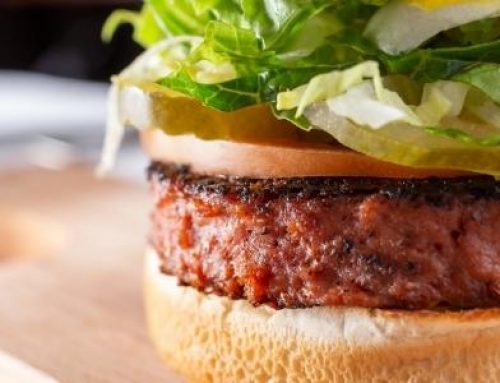Gaining muscle is like one of those Ikea flat packs. It promises to be easy on paper, but in reality it takes so much longer than you thought and makes you want to yell profanity at the designers/inanimate objects/innocent bystanders/your sweaty reflection in the mirror.
Gaining muscle seems like a simple equation. Lifting weights + eating healthy foods = rock hard muscle. But it’s actually quite a complex equation, particularly beyond the beginner phase.
There are a number of hurdles that can derail even the most die hard gym addict.
There’s nothing worse than investing your time, effort and money into something only to receive little or no return. So, today I’m going to clear up what I see as the most common mistakes individuals make, when attempting to build muscle.
While this article is covering the nutritional side of the equation, I’d be remiss if I didn’t highlight the importance of training. Not just the partaking of training, but an appropriate, progressive resistance training program. If your training program isn’t telling your body to adapt and improve, then no matter how great your diet is you’re not going to see the results you want.
Now that we’ve covered that base, let’s jump into it.
1. You’re Not Eating Enough
Energy balance is the most important factor in body composition goals. Your energy intake needs to match your goals!
I’ve lost count of the number of times I’ve talked to a client who says something along the lines of; “I’ve tried everything and I just can’t put on weight/build muscle!” My typical response is, ” well, do you have an idea of your energy intake?”
This is typically met with a confused look, which is understandable. Not many individuals are aware of the energy content of their diet, and in general people tend to be horrible at ‘guesstimating’.
Unless you’re just starting out, gaining muscle without an energy surplus is going to be incredibly slow, if not non-existent. Building muscle is incredibly slow in the first place. I’m talking the slowest tortoise Esop could imagine.
Muscle is a metabolically costly tissue in the body. It requires a lot of fuel to maintain and even more fuel to build. Additionally, there is some research to suggest that certain individuals subconsciously increase their NEAT (non-exercise activity thermogenesis), which increases energy expenditure making gains even more difficult! [1]
To ensure you’re gaining muscle, use some form of quantifiable measures such as weight, body measurements, clothes fit or progress pictures, on a regular basis. If you’re not noticing the changes you’d like, then it’s time to up your intake!
2. You’re Eating Too Much
Yep, the tables have turned. For every individual that suffers from not eating enough I have 2 who eat too much. In fitness talk it’s the “dirty bulk”.
Typically seen in the younger trainee, who often follows the advice of their favourite pro bodybuilder, and with those who choose to go down the ‘eat everything and anything’ route. Some of you may be thinking “well hell, it’s winter. Nothing like a bit of extra padding if it means more muscle!”.
Here’s the problem. Muscle only grows at a certain rate. And that rate is painfully slow. (Pick up what I’m saying yet?) You can’t force feed muscle growth!
So while it’s important to ensure you’re in a calorie surplus for optimal rates of growth, we also have to be careful not to get carried away.
Realistically, some body fat gain is likely to occur during a phase of trying to build muscle. Unfortunately, as your body fat percentage increases you’re likely to see diminished returns in muscle building and an increase in body fat can actually be counter-productive. As body fat percentage rises it’s more likely that the insulin sensitivity of your muscles will decrease. Over time, a greater proportion of your weight gain is more likely to be fat rather then muscle.
A recent 12-week study comparing rates of weight gain in resistance-trained athletes found that the group that consumed a small surplus gained the same amount of muscle and strength, but only one fifth the body fat as the group that consumed an additional 600 calories [2].
Place yourself in a small energy surplus, train hard (and smart) and give yourself plenty of time.
3. You’re Inconsistent
As I mentioned in point 1 & 2, muscle growth is like watching grass grow. The more training experience you have, the slower it is. If only life worked that way, right? (too deep?).
What definitely won’t help your muscle building goals is being inconsistent with the processes that are going to lead you there.
Under-eating every second day, missing multiple training sessions, having an inconsistent sleep patterns. These are all going to make your goals that much harder to achieve. They’ll also make it harder to track progress accurately.
Picture it this way. You’re going on a road trip. Destination: Gainzville.
It’s a long, hard trip on a dangerous road. Speeding will likely result in you getting lost along the way, crashing or breaking down.
Be the consistent, focused and flexible driver. Realise that you’re going to reach your destination a whole lot quicker if you stick to a consistent speed, enjoy the ride and enjoy the occasional road stop for coffee and donut.
4. You’re not getting enough sleep and your stress is through the roof
Let’s face it, the majority of us aren’t fitness models, bodybuilders or movie stars. Building a great body isn’t our job and it doesn’t pay the bills.We have lives outside of the gym and kitchen, and they’re stressful.
Both sleep and stress levels effect so many aspects of our health and muscle building is not left out. Sleep deprivation can lead to negative changes with glucose regulation, decision making, blood pressure and hormones. Of particular relevance is the reduction of testosterone and insulin like growth factor-1 (IGF-1) and an increase in cortisol levels. This is essentially a bad environment for gaining muscle and is likely to result in an increase in protein breakdown in the body.[3] Intensity of training will fall, recovery will be reduced and chances of injury are increased.
Sounds like hell to me.
Make sure your training program is realistic, enjoyable and flexible. Realistic in that, if you’re a busy dad who struggles to get to the gym 3 times a week for an hour, following a program that has you training 5 times a week is going to be unrealistic and add stress to your life.
The same with your diet. Your diet shouldn’t be adding to your stress levels. If it is, that’s a good sign you need to re-adjust your plan. Be flexible, don’t expect perfection and just focus on nailing the foundations consistently. Eat plenty of whole foods, including proteins, whole grains, healthy fats, vegetables, fruits etc. The Hub can help you figure out what this looks like.
And remember, you’re trying to gain muscle. This allows you a little more wriggle room for the foods you love. Enjoy it and stress less.
5. You’re reliant on supplements
The majority of supplements are cr*p.
There I said it. If you’re spending a large amount of money on “muscle building” supplements, then it’s time to go back to the drawing board.
It’s all in the name. They supplement a healthy diet, not make up for a poor one. It’s hard to give a percentage on the impact that supplements have on your overall goals, but If I were to take an educated guess, I would say that it would be 5-7% at most.
Seriously. And that’s the ones that have evidence to show they work.
You would be much better off taking the money you invest on supplements, and investing in yourself. Educate yourself or work with a professional.
Relating it back to point 4, why not use some of that money to go out for dinner with your partner/friends/family, enjoy the night, have a laugh and de-stress. In the long run, de-stressing is likely to have just as much impact as most supplements.
Focus on the principles. Energy balance, adequate protein intake and a nutrient dense diet.
6. You’re too focused on body image
As I mentioned in point 2, when trying to build muscle beyond the newbie phase you’re likely going to have to accept a small amount of fat gain along with the muscle.
This can be hard to hear and it can be a huge hurdle for some individuals to overcome.
Particularly if they have come from a past of being overweight. The thought of gaining back any body fat can be paralyzing in the muscle building journey and it can sabotage any attempts to build muscle.
This hits close to home. I’ve been at this point early in my training and nutrition “life”. How did I overcome this fear? Through 2 main ways; Increasing my knowledge and focusing more on strength and performance.
Knowledge is power.
Having an understanding of physiology, body composition and nutrition really helped me realise that I was in control of my body composition and helped quell any fears I may have had. I’m not advising that everyone should go out and study nutrition and exercise science, but having some reliable sources or mentors/coaching can be a huge help.
Taking the focus off body composition and weight based goals and focusing more on training goals was beneficial as well. Think about what training goals you’d like to achieve. Think about how eating more is going to help fuel those training sessions and provide the building blocks for new muscle. Full glycogen stores equate to great training sessions and satisfying muscle “pumps”.
Embrace it.
7. You’re following a restrictive diet
I mentioned previously that approaching muscle gain with the “dirty” bulk mindset of eat everything and anything, is often an easy way to overshoot your calorie surplus and gain unwanted fat.
On the other end of the spectrum, focusing on “clean” bulking can be just as detrimental.
Take it from someone who’s intake is pretty average for my weight and activity levels. Trying to eat only foods deemed “clean” or “healthy” can be uncomfortable when energy needs are high.
While basing your diet around nutrient dense foods is great, for some individuals getting enough energy in is hard. Trying to do this while avoiding energy dense foods can be near impossible and it places undue stress on your gastrointestinal tract due to the sheer volume of food and fibre eaten throughout the day.
For individuals with high energy needs, attempting to eat a 100% “clean” diet while gaining muscle will be a hindrance rather than helpful. As long as you meet your nutrient needs then there is literally no reason not to indulge in some of the foods you love that may lack nutrients. Cheesecake anyone?
There you have it. Those are the biggest mistakes individuals make when it comes to gaining muscle. If you can avoid these pitfalls, your halfway there.
Just remember that time and patience are a huge part of any worthwhile goal. Doing the above for 2 weeks isn’t going to elicit any major changes. You need to spend a decent amount of time working on the one goal.
If you’re having trouble gaining muscle or you want to eat in a simple, fresh and balanced way, we can help you find what works for you.
If you’d like further help with your nutrition please click below:
References:
[1] Levine JA, Eberhardt NL, Jensen MD. Role of nonexercise activity thermogenesis in resistance to fat gain in humans. Science. 1999 Jan 8;283(5399):212-4.
[2] Garthe I, Raastad T, Refsnes PE, Sundgot-Borgen J. Effect of nutritional intervention on body composition and performance in elite athletes. European journal of sport science. 2013 May 1;13(3):295-303.
[3] Garthe I, Raastad T, Refsnes PE, Sundgot-Borgen J. Effect of nutritional intervention on body composition and performance in elite athletes. European journal of sport science. 2013 May 1;13(3):295-303.






